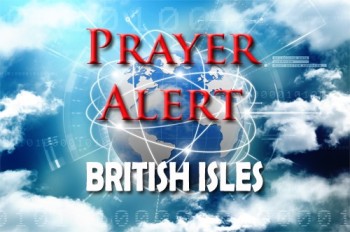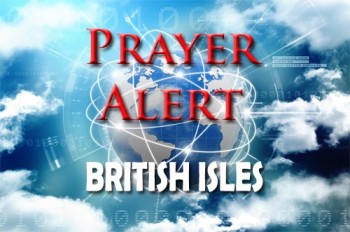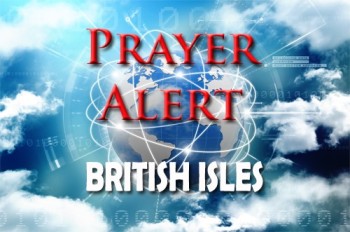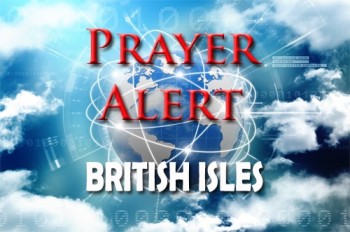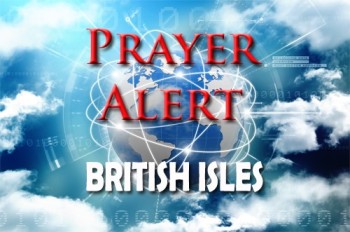Displaying items by tag: United Kingdom
Poll reflects 'quiet revival' as more young people embrace belief in God
A new YouGov survey has revealed a marked increase in young adults believing in God, signalling what many church leaders describe as a ‘quiet revival’. Among 18- to 24-year-olds, 37% now affirm belief in God—up sharply from just 16% in 2021. Although down from a January peak of 45%, the figures still indicate a significant generational shift. By comparison, belief among 25 to 49-year-olds stands at 25%, while older age groups remain steady, with around 27% of 50- to 64-year-olds and 32% of those over 65 continuing to express faith. Notably, disbelief in any spiritual power among younger adults has dropped from 19% in 2022 to 12% today. Bishop Jill Duff of Lancaster welcomed the findings, noting a clear openness to God, Christianity, and the supernatural among younger people. She described this as evidence of a growing spiritual awakening which is already being observed in churches across the nation.
More councils consider asylum hotel legal challenges
A landmark High Court ruling has opened the way for local councils to challenge the use of hotels for housing asylum seekers. The judgement came after Epping Forest District Council successfully argued that protests around a hotel in Essex, earmarked for 140 asylum seekers, had caused 'evidenced harms’ including violence and arrests. Conservative leader Kemi Badenoch hailed the ruling as a 'victory for local people’, encouraging other Tory-run councils to pursue similar action. At least four more Conservative councils are now exploring legal challenges, and two Labour-controlled authorities are reassessing their options, in light of the precedent. Reform UK has also urged its councils to follow suit. Hotel use for asylum seekers peaked during the Covid pandemic, housing over 56,000 people in 2023. Current figures show a 15% decline, with 32,345 still accommodated in March. The Government has pledged to phase out asylum hotels by 2029, pledging alternative housing through faster asylum decisions and reduced small-boat crossings.
Far-right link taints ‘patriotic’ grassroots flag movement
A grassroots campaign called 'Operation Raise the Colours' has seen activists in over a dozen English towns hoisting hundreds of Union and St George’s Cross flags on lampposts. Organisers claim the movement aims to restore national pride and community spirit, with some £13,000 raised to buy flags. However, its credibility has been damaged by links to far-right groups. Britain First donated 250 flags, and organiser Andy Saxon has publicly supported its leader Paul Golding and activist Tommy Robinson. Britain First, with roots in the BNP, is notorious for promoting 'remigration' and anti-Muslim rhetoric; its leader has criminal convictions for religiously aggravated harassment. Critics warn that what is presented as patriotism risks being hijacked by extremist groups. Councils in Birmingham and Tower Hamlets have removed flags, citing safety and political concerns, while twelve Reform UK-controlled councils have pledged not to take them down, calling removals 'shameful’. The controversy highlights how national symbols can be co-opted into culture wars, deepening division rather than fostering unity.
Students receive GCSE and BTec results
On 21 August pupils across England, Wales and Northern Ireland received GCSE, BTec and other Level 2 results. The GCSE pass rate is similar to last year, which saw a third consecutive decline after the Covid pandemic. With more 16-year-olds in the population and rising demand for sixth form places, competition is fierce. Some colleges have expanded capacity, but others warn they will have to turn students away. Concerns over possible VAT on private school fees may also drive more families toward state provision. Education secretary Bridget Phillipson praised pupils’ resilience but condemned entrenched inequalities, noting that only 19% of white British working-class children achieved strong passes in maths and English in 2024 - virtually unchanged from 2017. About 170,000 students have received BTec results and 110,000 Cambridge Nationals, while in Scotland exam pass rates have risen. For many students who began secondary school during lockdown, these results mark the culmination of years of disrupted learning, testing both their determination and the system’s ability to provide equal opportunity.
Rachel Reeves' 'mansion tax' plan
Reports suggest Chancellor Rachel Reeves may extend capital gains tax (CGT) to primary residences above a set threshold, sparking debate over a potential 'mansion tax’. Currently, homeowners pay no CGT when selling their main residence, but proposals would remove this exemption for higher-value properties. The Times estimates a £1.5m threshold could affect around 120,000 households, with bills reaching hundreds of thousands for long-term owners. Critics say it punishes older homeowners downsizing, discourages market mobility, and risks pushing wealth abroad. Many argue it unfairly double-taxes families already burdened by stamp duty. Property experts warn it could freeze the housing market, reducing sales and Treasury income. Supporters say it could help fill the £51bn fiscal shortfall while targeting wealthier households. Reeves has already cut CGT allowances in recent budgets and raised rates on shares and property. An announcement could come in the autumn Budget. Opponents argue re-banding council tax would be more effective and less disruptive.
UK signs deal with Iraq to speed up migrant returns
The Government has signed a new agreement with Iraq to accelerate the return of migrants who have no legal right to remain. Home office minister Dan Jarvis finalised the deal with Iraq’s deputy foreign minister, expanding cooperation on security, migration, and tackling smuggling networks - many run by Iraqi Kurds. While small-boat crossings overall remain at record highs, Iraqi arrivals have declined to 1,900 in the year to March 2025, down from 2,600 the previous year. The government argues this drop demonstrates the effectiveness of earlier cooperation. However, critics, including Conservative shadow home secretary Chris Philp, dismissed the new deal as 'measly’, pointing out that most small-boat arrivals are now from other nations. Not all Iraqis will be returned; about 26% have successfully claimed asylum on grounds of persecution. The agreement follows similar deals with Albania and Vietnam and a recent UK-France accord. Ministers insist such measures strengthen border security, while critics argue that crossings remain unacceptably high.
Former CofE priest found guilty of 17 indecent assaults
Chris Brain, a former CofE priest and founder of the Nine O’Clock Service (NOS), has been convicted of 17 counts of indecent assault against nine women. The NOS, active between 1986 and 1995, blended rave culture with worship but was later exposed as a manipulative, closed environment in which Brain exploited his authority. Prosecutors told the court that some victims, recruited to a 'homebase team' to care for Brain and his family, were pressured into sexual favours and treated as servants. The group referred to some of these women as 'Lycra lovelies' or 'Lycra nuns’. Several assaults occurred during massages, which Brain admitted but insisted were consensual, describing them as 'no big deal’. The court heard, however, that Brain abused his influence, creating a controlling culture that enabled systematic exploitation. Now 68, he was removed from ministry in 1995. Jurors continue to deliberate on four further indecent assault charges and one rape charge. Brain denies wrongdoing on all counts.
Hong Kong: UK and Australia each grant asylum to a pro-democracy activist
Australia and the UK have each granted asylum to a prominent Hong Kong pro-democracy activist. In 2020, lawmaker Ted Hui threw rotten plants on the floor of the legislative council chamber to protest against the sweeping new national security law. Facing arrest for leading anti-government protests, he fled with his family to Australia, where they have now been granted protection visas. Student leader Tony Chung left in 2023, citing ‘enormous stress’ from constant police scrutiny. He was later convicted under the national security law for calling for Hong Kong’s secession, but has now received refugee status and a five-year residence permit in the UK. The Hong Kong government has strongly condemned the UK and Australia for ‘harbouring offenders’, stating that its arrests are based on ‘facts and evidence’ rather than politics. Critics, however, maintain that the law is being used to silence dissent and spread fear.
Number of UC claimants jumps dramatically
A record eight million people are now claiming Universal Credit (UC), the highest since its 2013 introduction, and a sharp increase from 6.9 million in July 2024. This has largely been driven by a surge in those not expected to work due to long-term illness, caring responsibilities, or being over pension age. This category grew by 39% in a year, now totalling 3.7 million. UC supports both unemployed individuals and low-income workers, with 2.2 million claimants currently in work. London has one of the highest claimant numbers, with over 364,000 people receiving benefits. A new breakdown by immigration status reveals that 83.8% of claimants are British or Irish nationals, 9.6% hold EU settled status, and smaller proportions are refugees or humanitarian arrivals. The Government has pledged welfare reforms, citing an ‘unsustainable benefits bill’. The figures highlight ongoing challenges with health, employment, and cost-of-living pressures affecting millions across the UK.
Students receive A-level, T-level, Btec results
Students across England, Wales, and Northern Ireland have received their A-level, T-level, and BTec National results, with top grades once again rising slightly (28.3%, up from 27.8% in 2024). Despite ongoing recovery from the Covid disruption, a record number of 18-year-olds are predicted to gain entry to their first-choice universities. This year’s cohort faced unique challenges: lower GCSE grades due to efforts to reduce pandemic-era grade inflation, and years of interrupted learning during national lockdowns. Education secretary Bridget Phillipson acknowledged persistent inequalities, particularly for white working-class students, and pledged continued reforms. The results also mark the fourth year of vocational T-level qualifications, which blend academic study with industry experience. Many students have used these pathways to secure jobs and prepare for future careers. Universities, seeking stability amid uncertain international admissions, may be more flexible in accepting students, with leaders urging recognition of the extraordinary circumstances these young people have overcome.

